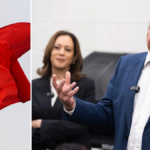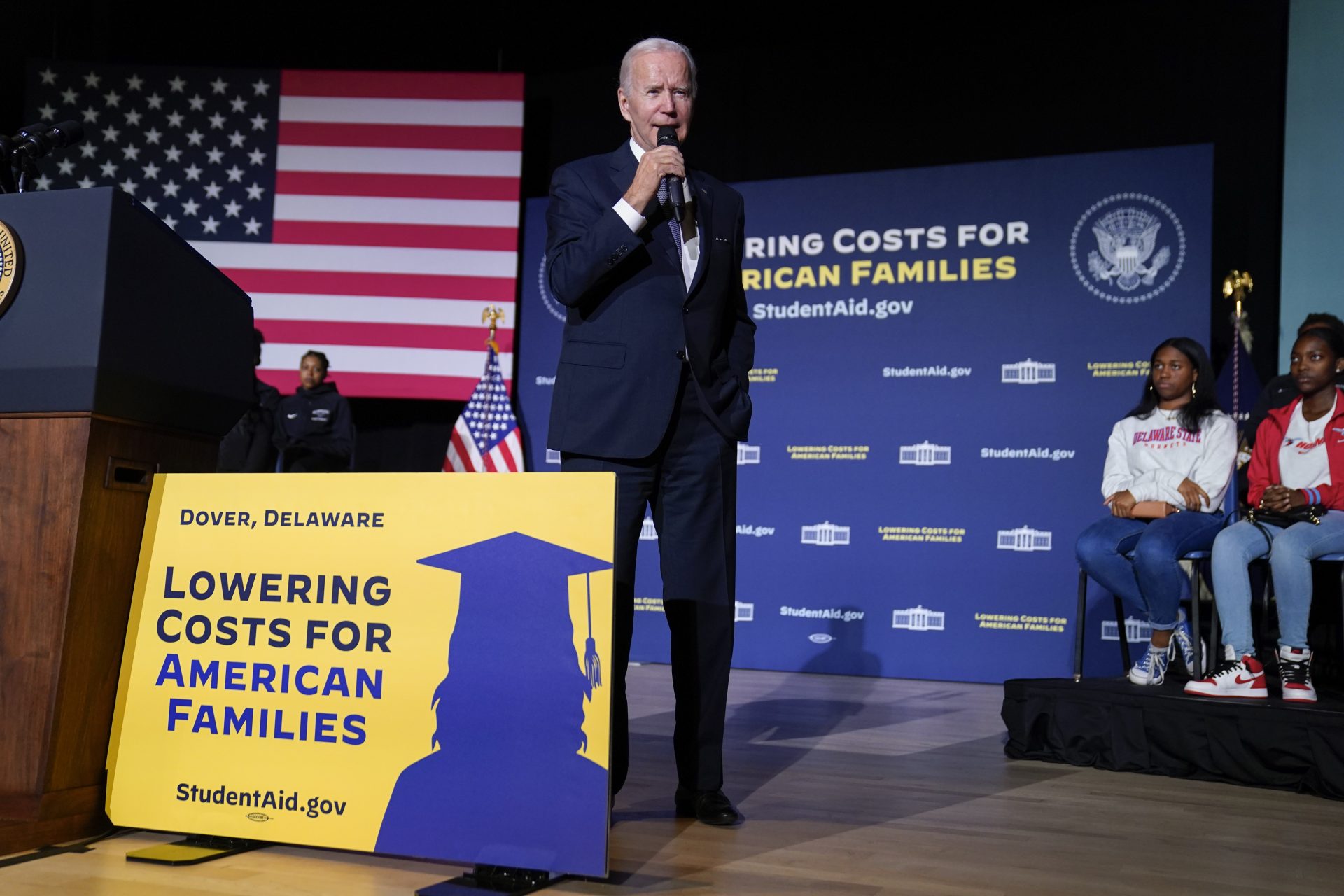Politics, Policy, Political News Top Stories
President Joe Biden’s efforts to cancel student debt for millions of Americans “fall comfortably” within the law and enjoy “clear authorization” from Congress, the Justice Department argued Wednesday in its opening brief defending the policy before the Supreme Court.
The court filing, submitted late Wednesday evening, marks the beginning of a high-stakes battle at the court in the coming months over the fate of one of Biden’s major domestic policy programs.
The Supreme Court is scheduled to hear oral arguments in February in two cases challenging the debt relief program, which provides up to $20,000 of loan forgiveness for tens of millions of borrowers.
One case is a lawsuit by six Republican-led states, led by Nebraska and Missouri. A second case was brought by a conservative advocacy group on behalf of two Texas student loan borrowers who were partially or fully excluded from the program.
The brief filed Wednesday largely echos the legal arguments that the Biden administration has been making in lower courts over the past several months.
It argues, first, that the Supreme Court should toss out the case because the GOP states and Texas borrowers lack legal standing to bring the case. But, the Biden administration argues, the program is clearly legal in any event.
Administration officials argue that they have the authority to cancel large amounts of debt under the HEROES Act, a 2003 law that gives the Education Department the power to waive the laws that typically govern federal student loans during national emergencies.
Education Secretary Miguel Cardona’s “actions fall comfortably within the plain text” of the HEROES Act, the brief says.
The brief also laments lower court decisions that have frozen the program since this fall.
“The lower courts’ orders have erroneously deprived the Secretary of his statutory authority to provide targeted student-loan debt relief to borrowers affected by national emergencies, leaving millions of economically vulnerable borrowers in limbo,” the Justice Department wrote.
The Justice Department framed the student debt relief program as a logical way for the Biden administration to wind down the unprecedented pause on student loan payments that has been in place since March 2020.
The Biden administration determined“that ending that pause without providing some additional relief for lower-income borrowers would cause delinquency and default rates to spike above pre-pandemic levels,” the Justice Department wrote in its brief. “This Court should not compel that damaging and destabilizing result.”
Both the Republican officials and the conservative group argue that the Biden administration is using the Covid-19 pandemic as a pretext for circumventing Congressional approval for a sweeping new program that will cost hundreds of billions of dollars. They both argue that the program is flatly illegal and an abuse of authority.
The states argue the debt relief plan will reduce tax revenues or other funding that is related to state-related entities that own, manage or invest in federal student loans. A key part of their argument relies on how the debt relief plan would affect the Missouri Higher Education Loan Authority, known as MOHELA, a loan servicing company created by the state of Missouri.
The two loan borrowers from Texas argue they are injured because they were illegally deprived of the opportunity to provide feedback on the administration’s plan before it was finalized. They say they would have advocated for a more expansive program that provides them with more benefits.
The Education Department has approved some 16 million borrowers for loan forgiveness under the debt relief program, which has been paused by court orders since the fall. Nearly 10 million additional borrowers are in line for relief, according to the Education Department.
Biden administration officials have extended the pause on federal student loan payments and interest while the Supreme Court considers the case. The administration has said that payments could remain suspended through as late as Aug. 30.
Author Profile
Latest entries
 ScienceOctober 2, 2024A flu shot after having the flu may boost immunity
ScienceOctober 2, 2024A flu shot after having the flu may boost immunity HeadlinesOctober 2, 2024Archaeologists discover 5,000-year-old ancient community in Morocco
HeadlinesOctober 2, 2024Archaeologists discover 5,000-year-old ancient community in Morocco ScienceOctober 1, 2024Can you whiten your teeth too much?
ScienceOctober 1, 2024Can you whiten your teeth too much? HeadlinesOctober 1, 2024Tim Walz said he went to China 'dozens' of times, now his campaign says its 'closer to 15'
HeadlinesOctober 1, 2024Tim Walz said he went to China 'dozens' of times, now his campaign says its 'closer to 15'

